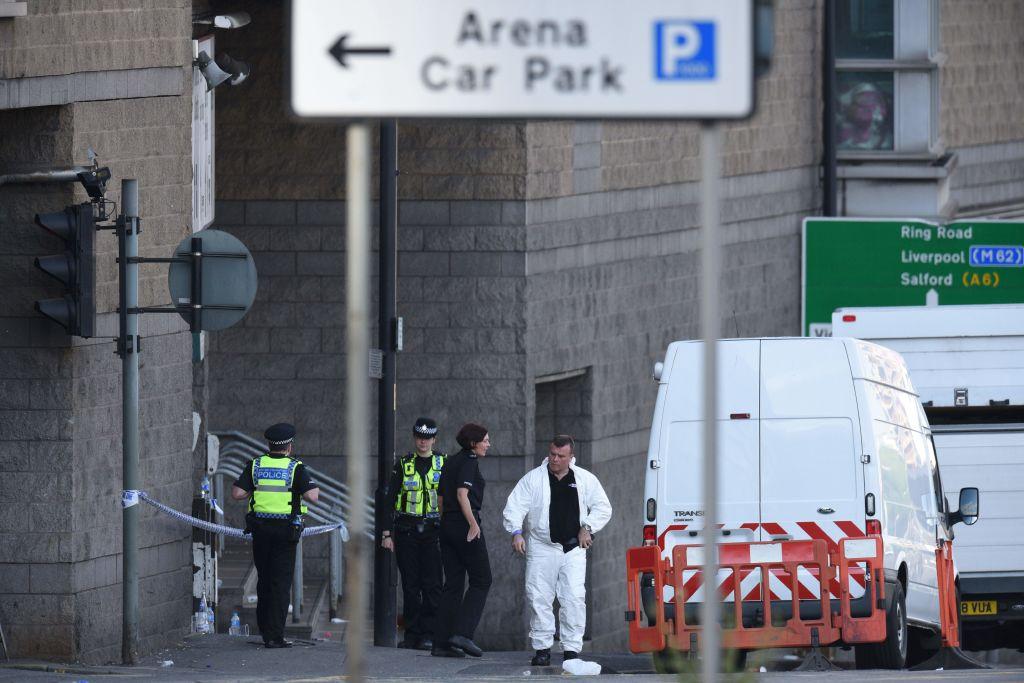Manchester Arena doors could have been shut to stop victims entering foyer that was bombed, inquiry told
Risk assessment for venue did not include bombings or terror attacks, inquiry told

Doors leading from Manchester Arena into the foyer where a bomb was detonated could have been closed if security guards had passed on concerns about Salman Abedi, an inquiry has heard.
The venue’s head of events said that victims may have been prevented from entering the area if the alarm had been raised.
A public inquiry into the bombing, on 22 May 2017, previously heard that a member of the public had told a security guard of concerns about Abedi.
Christopher Wild had confronted the bomber and asked what was in his rucksack while waiting to collect his daughter from Ariana Grande’s concert.
CCTV footage showed him speaking to Abedi 20 minutes before the bombing, and speaking to Showsec steward Mohammed Agha shortly afterwards.
Mr Agha previously told the inquiry that his role was to stand by a fire exit, that he had no radio and if he left his post except for an emergency he might lose his job.
He said he tried but failed to attract the attention of a Showsec supervisor, standing 30 metres away across the room, by raising his hand.
But on Wednesday the arena’s head of events, Miriam Stone, said Mr Wild’s concerns should have been relayed so a decision could have been made on what to do next.
She added: “I don’t want to cast any aspersions on him … but I don’t think it would have been difficult to contact somebody from that position.”
Ms Stone said it would have been “perfectly reasonable” for Mr Agha to leave his post to alert someone else, direct Mr Wild to speak to a colleague or try to catch someone’s attention in a different way.
At 10.25pm, six minutes before the bombing, the steward shared Mr Wild's concerns with colleague Kyle Lawler, who went on to observe that the man with the rucksack was “fidgety”.
In his evidence, Mr Lawler said he attempted to use his radio to alert the security control room but claimed he could not get through due to radio traffic.

He then left the area and took up his position on a walkway bridge outside the City Room and made no further attempt to raise the alarm.
Ms Stone said his comment about radio traffic at that time “does not really accord with my own experience”.
She added that she would have expected concerns about Abedi to be reported to the arena’s control room, and that people could have been prevented from entering the City Room area where the bomb was detonated.
She said the doors could have been closed “very quickly”, within minutes, adding: “Once we’ve made the decision we can be quite clear that that needs to happen instantly, immediately.”
The inquiry has heard that staff from security provider Showsec did not believe they were expected to check the raised mezzanine level of the City Room where Abedi hid in a CCTV blindspot, although check sheets listed the “Entire City Room area”.
Ms Stone told the hearing: “It had never occurred to me until the evidence that anybody would read it any other way. It's all one room. I would expect all of it to be checked.
“I expected them to actually go up the stairs and check the area at the top.”
Despite the UK’s terror threat level being at “severe”, meaning attacks were deemed highly likely, at the time of the attack the Grande concert had been described as low-risk in a document drawn up by Ms Stone.
Paul Greaney QC, counsel to the inquiry, said the risk assessment focused “upon whether the audience is likely to cause a problem, as opposed to what a terrorist is likely to want to do to the audience”.
He said there was nothing in the document about bombs or other forms of terror attacks, which was “obviously a flaw”.
Ms Stone said that the risk assessment form “didn’t particularly change from one event to the next”, but that staff mitigated against terror attacks separately.
She admitted that the document had become a “box-ticking” exercise, and said concerts were not considered to be at a heightened risk despite the 2015 Paris attacks that targeted the Bataclan.
Sir John Saunders, a retired High Court judge, is leading the probe examining events before, during and after the attack.
In total, 22 victims were killed, 264 people were injured and 710 survivors have reported suffering from psychological trauma.
Join our commenting forum
Join thought-provoking conversations, follow other Independent readers and see their replies
Comments




Bookmark popover
Removed from bookmarks